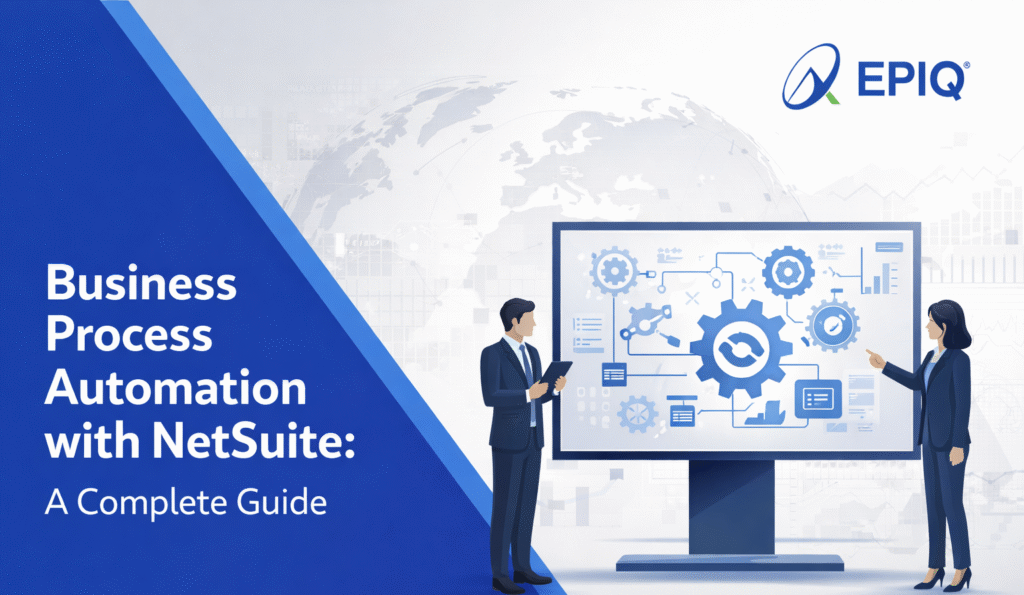Efficient procurement processes are a cornerstone of successful business operations. In today’s competitive market, businesses need effective procurement systems to maintain robust vendor relationships, optimize profit margins, and ensure smooth, uninterrupted operations.
The NetSuite Advanced Procurement Module offers a comprehensive solution to help organizations manage their procurement processes, reduce costs, and increase overall efficiency. By offering real-time visibility into procurement activities, it provides transparency across the supply chain, enabling businesses to make well-informed purchasing decisions and improve inventory management.
This guide will provide a detailed exploration of the NetSuite Procurement Module, its key features, benefits, and how it helps businesses streamline their procurement operations for better results.
Introduction to NetSuite Procurement Module
The NetSuite Procurement Module is designed to help businesses streamline their procurement processes by automating and organizing key tasks. These include managing purchase orders, supplier approvals, vendor performance, and providing a real-time overview of company spending. The module integrates procurement activities into a unified platform, ensuring businesses can track all aspects of their procurement process, from placing purchase orders to receiving goods and services.
This module supports the creation and management of vendor relationships and helps businesses negotiate the best prices for goods and services. The module assists firms in maintaining good supplier relationships while adhering to financial regulations by centralizing procurement information and automating important operations.
Top Benefits of the NetSuite Procurement Module
The NetSuite Procurement Module offers several benefits that directly contribute to better procurement management and operational efficiency. Here are some of the key advantages:
- Increased Profit
NetSuite provides purchasing managers with detailed vendor data, enabling them to capitalize on economies of scale. By analyzing vendor performance and purchasing trends, businesses can negotiate better contracts, resulting in reduced costs and improved profit margins.
- Cost Control
One of the primary functions of the procurement module is to help businesses maintain control over their spending. Purchase orders created through NetSuite specify item costs upfront, which prevents surprise price increases or mismatched invoices. This allows businesses to adhere to their budgets and avoid unapproved expenses.
- Improved Visibility
NetSuite’s centralized system ensures that all vendor details, transactions, and related projects are stored in one location. This allows procurement teams to quickly access accurate and relevant information, streamlining the purchasing process. Better visibility also ensures that managers can monitor and analyze spending trends, vendor performance, and departmental expenditures in real time.
- Three-Way Matching for Error Reduction
The three-way matching feature in the NetSuite Procurement Module compares purchase orders, received goods, and vendor invoices to identify discrepancies. This process ensures that businesses are only billed for what they received, reducing errors, overbilling, and fraud.
- Enhanced Vendor-Buyer Collaboration
The module’s vendor portal allows buyers and suppliers to collaborate in real time. This fosters better communication, promotes stronger partnerships, and makes it easier to share important documents and ideas. Vendors can use the portal to update order statuses and respond to requests, further improving the transparency of the procurement process.
Top Features of the NetSuite Procurement Module
NetSuite’s Procurement Module is packed with features that enhance procurement efficiency and ensure that organizations maintain strong supplier relationships. Below are some of the top features:
- Blanket Purchase Orders (BPOs)
A blanket purchase order (BPO) is a long-term agreement with a supplier that outlines predetermined terms and conditions, such as pricing, delivery schedules, and quantities. NetSuite’s Advanced Procurement Module allows businesses to create, manage, and track BPOs.
This simplifies procurement by reducing administrative overhead and enabling volume discounts. BPOs can also be easily updated to reflect changing market conditions or business needs, ensuring that the terms remain relevant and beneficial.
- Purchase Contracts
Purchase contracts define the terms and conditions of a procurement transaction between a supplier and a customer. NetSuite’s Procurement Module enables businesses to create and track purchase contracts that detail the costs, delivery timelines, and payment terms.
These contracts are enforceable agreements that help businesses meet procurement goals while maintaining strong supplier relationships. With the module’s robust analytics and reporting features, companies can track contract performance and make adjustments as necessary.
Purchase contracts can be generated automatically from an accepted vendor RFQ bid or manually created based on negotiations. Once a contract is in place, it can be linked to a purchase order (PO), ensuring that contract terms are enforced throughout the procurement process.
- Vendor RFQ (Request for Quote)
The quote request (RFQ) process is a key part of any procurement cycle. NetSuite’s Procurement Module makes it easy for businesses to create and manage RFQs. The module allows procurement teams to set specific parameters, send RFQs to multiple vendors, and compare responses side by side. This helps businesses select the most qualified supplier while ensuring competitive pricing.
Once an RFQ is submitted, vendors receive an invitation to respond via NetSuite’s Vendor Center. After all bids are submitted, the module provides tools to compare proposals, ensuring businesses make data-driven decisions when selecting vendors.
- Purchase Requisitions
Purchase requisitions are formal requests made within an organization to acquire goods or services. They are essential for maintaining control over procurement activities and ensuring that purchases comply with the company’s financial policies. With NetSuite, purchase requisitions can be created, managed, and approved with ease. The module includes flexible workflows that ensure requests are reviewed and approved by the relevant decision-makers, reducing the risk of unauthorized spending.
If the Advanced Procurement Module is not in use, companies can rely on purchase requests, which are submitted through the employee center and treated similarly to purchase orders. However, purchase requisitions provide more flexibility, as they are distinct transactions that don’t require vendor selection until later in the process.
How NetSuite’s Procurement Module Enhances Vendor Relationships
A strong vendor relationship is crucial for businesses looking to optimize procurement processes. NetSuite’s Procurement Module enables better communication, real-time collaboration, and transparency, allowing businesses to build and maintain mutually beneficial relationships with their suppliers.
- Vendor Portal
The vendor portal offers a central location for suppliers to interact with the business, providing real-time updates on purchase orders, invoices, and payments. This transparency strengthens trust between vendors and buyers, ensuring a smoother procurement process. Additionally, vendors can use the portal to submit RFQ bids and proposals, helping the procurement team compare and evaluate different supplier options more efficiently.
- Supplier Performance Tracking
NetSuite allows businesses to track supplier performance using key metrics such as on-time delivery, quality of goods, and compliance with terms. Businesses that evaluate vendor performance regularly can make informed judgments about which suppliers to continue working with and which relationships to enhance.
- Vendor Communication
The Procurement Module facilitates clear and structured communication between vendors and buyers. Suppliers can use the vendor portal to send order updates, invoices, and proposals, while buyers can communicate changes in purchase orders or delivery schedules directly through the platform. This real-time interaction helps prevent misunderstandings and ensures that both parties are aligned.
Conclusion
The NetSuite Procurement Module offers an all-encompassing solution for managing procurement activities within a business. By centralizing all procurement processes, from purchase orders to vendor management, it helps businesses reduce costs, improve efficiency, and ensure compliance with financial and regulatory policies.
The module’s comprehensive features such as blanket purchase orders, purchase contracts, vendor RFQs, and purchase requisitions empower businesses to streamline procurement operations, reduce manual effort, and enhance vendor relationships. Real-time visibility into spending, contract management, and supplier performance ensures that procurement teams can make well-informed decisions, helping businesses optimize profit margins and improve operational efficiency.







